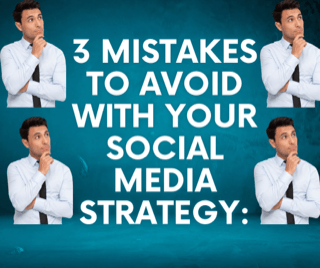January Mini-Series - Where's All My Customers At?!
Week 1 - How To Identify Your Ideal Target Audience

How To Identify Your Ideal Target Audience
Every excellent marketing piece starts with an ideal customer in mind.
Many business owners become frustrated as they send their content off with a bang, but no-one stays for the fireworks. Ultimately, your marketing will be ineffective if you don't know who your ideal customer is.
Taking 30 minutes to dive deep into your targeting can save you months of throwing content into the abyss and hoping something sticks. So, that's what we're going to do in this blog - help you identify your ideal customer.
A simple shift in targeting can see conversions skyrocket. So, we've condensed everything into this post.
Contrary to popular belief, you can't sell to everyone.
Well, you can, but your marketing will be ineffective, and you'll have to cut corners. Appealing to the masses requires a higher budget, significant content assets and multiple price ranges.
Impressions and engagement on your content can be reassuring, but if viewers aren't responding to your call to action, the ad budget goes to waste.
To get clear on your targeting, you need to know this information about your ideal client:
●
Age
●demographic
●Job Title
●Hobbies
●Family
●Marital status
●Goals and aspirations
●Challenges
●How you help
You can add additional filters to make it easier for creators to tailor content towards this type of client. To go a step further, spend time identifying those you do NOT want to sell to.
Understanding the critical identifiers of those that don't fit the bill allows you to target with increased efficiency in the future.
No doubt you've been told you need to be everywhere online to get seen; TickTock this and Snapchat that. But that effort is wasted if your customers aren't using that platform. The first step to effective marketing is to speak to your prospects on the platform they love to use.
You can identify this in several ways:
●What content are they engaging with?
●When in the day would they use social media?
●Do they use social media for their business?
●What kind of services do they look for?
An app developer's approach may differ significantly to an e-commerce shop. App developers would be looking to communicate with tech businesses. Understanding this, they would turn to LinkedIn, where there are many key decision-makers. In comparison, an E-commerce business may turn to Facebook advertising to accurately target different audiences for various products.
Sometimes, your ideal client may not appear as one at first, and the only way to identify them is to have a conversation. Opportunities may arise for you to engage with them organically, through yours or their content.
Once you have built rapport, reach out to them directly and have a conversation. No selling, no pitching. Just two people getting to know one another. Here is your opportunity to ask them questions about their business and qualify them as a prospect.
This approach is more effective as a service-based business. However, as a brand, replying with personality can influence buying decisions amongst your customer base. People love talking to brands that they can relate to, humanising your marketing voice helps strengthen that relationship.
Strong content helps build a solid foundation, but without a strategy behind your marketing, you'll be shouting to the wind. Showing up where your customers are will put you steps ahead of the competition as they lose their minds concluding what's gone awry.
Facebook ads are leagues above many options for the customizability on offer. Being able to filter by almost all of your ideal customer identifiers improves the effectiveness of your message.
Blog









